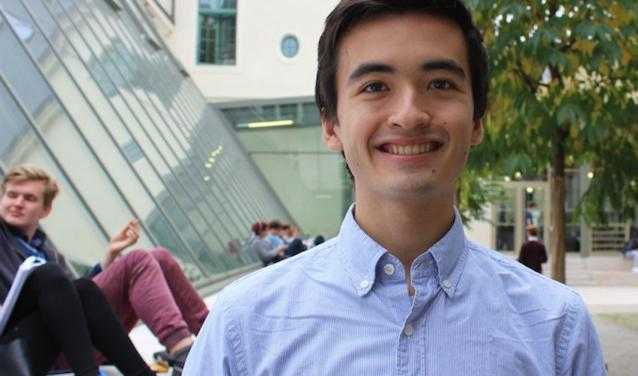Home>“In the United States and now in France, I witnessed a significant political change first-hand.”

25.04.2017
“In the United States and now in France, I witnessed a significant political change first-hand.”
In the run-up to the French presidential election, the famous weekly Paris Match invited international students from the Sciences Po Undergraduate College to shed some light on the words that matter to them in politics. Jimmy Quinn, 18, an American student on the Reims campus, chose the word ‘system’.
Why did you choose the word ‘system’?
I chose the word system because I see a considerable shift in electoral politics both in France and the West from the traditional right-left divide to a globalist-nationalist cleavage. We're living through a moment of significant political change, and I've been lucky to be able to witness it first-hand in the United States and now in France.
The roots of this change have existed for decades, but we've only recently started to interpret them in this way. Structural economic change is scrambling the left-right divide over the size of the state and redistributive policies, and pushing issues of globalisation to the forefront of the debate. As a result, some right-leaning voters find they have more in common on certain issues, such as European defence cooperation, with Socialist Party supporters than with far-right National Front voters, for example.
These developments are far from complete, though. The economic dimension remains highly salient. However, to me the word system is an excellent starting point for thinking about the trends that will drive politics in many Western democracies going forward.
You are American, what’s your view of the French presidential campaign?
For Americans, it's surprising to see the diverse range of candidates vying for the presidency. We're used to a two-party contest with little room for outsiders to disrupt politics as normal, but even in a normal election year the French electorate is more fractured than in the United States. This lends itself to an exciting campaign with consequences that will be felt beyond the Hexagon.
I only recently recognised the volatile nature of French politics. The current constitution is barely six decades old, and two of the major candidates are proposing to replace it with something new. Mass demonstrations largely stand in for interest groups in wielding influence over public policy. The candidates this year are all advocating for varying degrees of change, and if we consider French history we should not be surprised if the winner tries to take the country in an abruptly new direction.
What did you get out of collaborating with a media publication like "Paris Match"?
Working with the team at Paris Match was a surreal experience for me. I've been coordinating a project to cover the election with the Reims campus newspaper, The Sundial Press, for the past semester, and the opportunity to take what we've observed while attending the candidates' rallies to a broader audience was a new and intellectually stimulating challenge.
I've considered eventually pursuing a career in journalism, and needless to say the publication of this article was a dream come true. I had to write this piece within the confines of word limits and clear deadlines, and I got a real sense of the editorial process of a major media outlet like Paris Match as a result.
Find out more